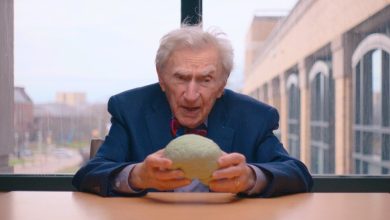In This New Year, Can We Change More Than Ourselves?

Why do we make the same New Year’s resolutions year after year? “Thiswill be the year that I will lose 20 pounds and exercise five days a week.” “I resolve to stop being late, again.” “This year I will start volunteering.”
We make these promises, but most of us continually fail to achieve them, which we attribute to a failure of will. Fitness companies and weight-loss programs know that they have to sign us up in January, when our willpower is the strongest: By February, we begin to tire; by March, having lost five pounds, we revert to our old habits.
The deeper problem, as my father would put it, is the “triumph of hope over expectation.” The only way to change the path of expectation is to face and dissect why our resolutions failed before. That road leads to many unexpected destinations far beyond willpower.
As it goes for each of us, so it goes for the nation. Physical trainers know that spot reductions are unfeasible: To lose fat and strengthen muscle, one must follow a workout program for the entire body. The same precept applies to an entire range of individual, organizational and social change. Behaviors we want to alter represent deeper patterns of action and inaction. Changing systems requires a strategic plan.
Here’s how it works at the individual level. To lose 20 pounds, I have to eat less. That doesn’t mean focusing on short-term denial, since dieting rarely works in the long term. It means changing my eating habits and having healthy, tasty food readily available. To have healthy, tasty food available, I have to plan my meals on a weekly basis. I also have to make time to cook in advance so that I don’t open the fridge when I’m really hungry and realize that cooking something healthy will mean that it won’t reach my plate for another hour.
To have that weekly planning and cooking time, I have to free up a big chunk of Sunday. To free up a big chunk of Sunday, I need to work less so that I don’t spend so much of my weekends catching up on work I could not get to during the week. To work less means summoning the honesty to remove a whole set of psychological barriers to saying no. And changing all of these patterns will affect my family and my colleagues, requiring them to adapt and adjust their own habits.
Alternatively, suppose this year you resolve to repair a relationship with a family member or a friend with whom you have fallen out or lost touch. A casual email or phone call is unlikely to suffice. It’s worth asking yourself, why did the relationship fray? Most important, what did you do that led or contributed to the fraying? What now needs to be undone or requires acknowledgment and apology? The process of turning back to someone else is likely to require some uncomfortable time with yourself.
What would this process look like at the national level? Take one of our biggest challenges as a nation, polarization and societal division. The news of our views of one another is unrelentingly bleak. The nonprofit research group More in Common recently reported that “less than one in four Americans believe the federal government, American corporations and national media to be honest.” Worse: We fundamentally mistrust one another.
We tend to focus on battles over specific issues — gun laws, immigration policy, abortion — but lasting change in the United States must go deeper than efforts to reform individual policy areas. It will require a majority of Americans coming to believe that what we have in common with other Americans is greater than our differences. For many of us, that shift will require a fundamental reckoning with who we are and have been as a nation.
White Americans who can see ourselves in the traditional Pilgrim-pioneer narrative, even if our families came to this country under very different circumstances, will have to see the experience of enslavement, genocide, domestic terrorism, second-class citizenship and extortion as our history, too. We must own the ways that the foundational inequities of this country continue to play out today.
Squaring that history, and its enduring legacies, with our professed ideals of universal liberty, equality and justice will come only by being radically honest about our past, gathering our courage to reckon, honor, heal and repair.
Personal and political change are different processes, differing according to the people and the polities concerned. But both require identifying big long-term goals and the smaller, immediate steps that will allow us to meet them. Perhaps that means we change the books we read, the commentators we turn to, the communities we join or the way we engage in conversation.
To tackle national polarization at the individual level, we can try to recover our plural identities. Instead of seeing one another primarily as red or blue, we can find channels of connection as moms, dads, sports fans, fellow denizens of a specific state (Texans are often Texans before they are either Democrats or Republicans), gardeners, people of faith, cancer survivors, science fiction lovers, outdoor enthusiasts. Recognizing that political antagonists are multifaceted people with multiple reasons for their views is a move toward what the journalist Amanda Ripley describes as “complicating the narrative.” And rejecting a simple good-versus-evil frame is a key step in defusing conflict.
We could also reconsider our consumption of political news. Cable television and radio talk shows profit from exploiting our divisions. But those divisions are a single dimension of our lives, not the sum of our humanity.
We can change our conversational habits, committing to asking questions rather than making statements and to actually listening to the answers. And when discussions get heated, we can ask the person we are trying to persuade, “What kind of evidence would convince you?” We can also ask ourselves the same question.
Imagine the country youwant to see in 2022 and in the years to come. Choose one change that would give you hope and pride. Find a group working to bring that change about. Join it. And figure out what else in your life you have to do and change to make your resolution real.
Anne-Marie Slaughter is the chief executive officer of New America, a think tank. Her most recent book is “Renewal: From Crisis to Transformation in Our Lives, Work, and Politics.”
The Times is committed to publishing a diversity of letters to the editor. We’d like to hear what you think about this or any of our articles. Here are some tips. And here’s our email: [email protected].
Follow The New York Times Opinion section on Facebook, Twitter (@NYTopinion) and Instagram.





